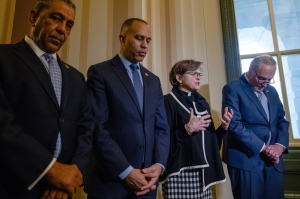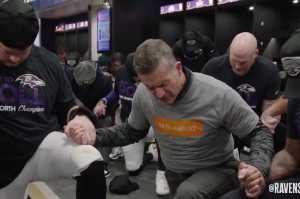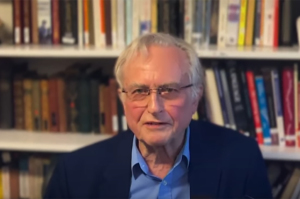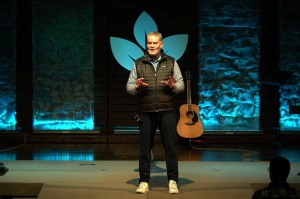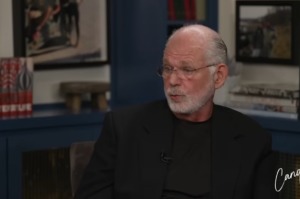Ex-CIA officer recalls struggling to live out his faith, losing 'moral compass'
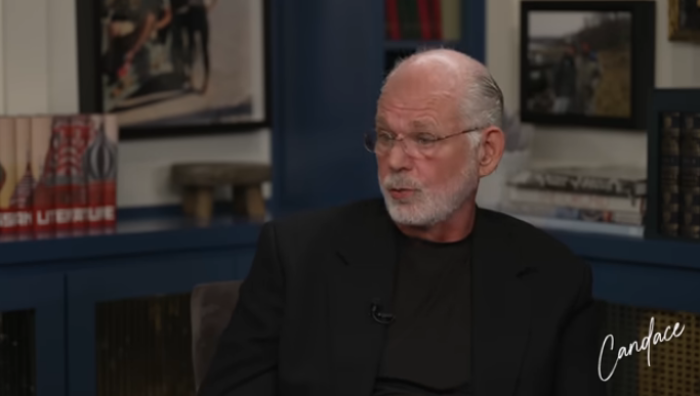
A former Central Intelligence Agency (CIA) officer says being a follower of Christ isn’t easy while working in an environment that involves deception.
Shipp, an author and CIA veteran who served for 17 years in various roles at the agency, shared his journey and the moral dilemmas he faced in an interview with podcaster Candace Owens in November.
He said it all began with a simple yet profound question that changed the course of his life during his interview at CIA headquarters in Langley, Virginia, where he was interviewed by what he described as a chain-smoking silver-haired CIA official.
“He’s just chain-smoking away, and he goes, ‘Kevin, have a seat,’ so I sit in the chair and of course, I sunk down, you know, and so his desk is way up here, I'm like, OK, I know what's going on here,” he said.
When the official asked Shipp if he had ever “broken the law,” Shipp said, “I'd become a Christian at that point, so I tried to tell the truth the best I could. I said, ‘Yes sir, I have.’ He goes, “Why don't you tell me about it?”
After joining the agency, Shipp advanced through the ranks. His work in counterterrorism led him to more morally complex situations as he began collecting human intelligence in the field, which, he said, at times included “drinking with the enemy.”
“What that does to your moral compass is just not good,” said Shipp, adding that while he “was still a Christian” during that time, he would consider himself “backslid.”
“My job was to steal, to lie, to drink with the foreigners, and I would take mental notes as I was extracting information,” he explained.
One of the pivotal moments in Shipp’s career occurred while he was stationed on the border of the Soviet Union. While shopping at a mall, a woman approached him and asked, "Would you like to hear the Gospel of Jesus Christ?"
Initially, Shipp rebuffed her, but as he walked away, he had a moment of profound reflection. “I was like, ‘My God, what has happened to me,’ you know? I went back to the hotel room, I was like, ‘I can't do this anymore,’” he said, recalling the inner turmoil that led him to re-evaluate his role in the CIA.
The wake-up call ultimately led Shipp to make the difficult decision to leave the agency. Despite being offered a lucrative opportunity to continue his work, Shipp declined, saying, “Sir, thank you so much for the offer, but I’m not interested. I’m going to have to turn it down.”
Shipp, whose books include Twilight of the Shadow Government: How Transparency Will Kill the Deep State, said despite the challenges of working in the intelligence field, his faith was tested long before he joined the CIA.
He told Owens that when he was 26, he experienced a medical crisis that nearly took his life. Both of his kidneys had failed, and doctors gave him just six weeks to live. His mother, despite being an agnostic, reached out to a prayer group led by Sue Barton, a woman who believed in the power of prayer.
“She had a prayer group, and that little prayer group of ladies believed that God still heals from the Bible,” he recalled. “And so, they prayed and prayed and prayed. [...] I was in there for 30 days at that point, and I was their poster child ‘cause I wasn't supposed to make it.”
Shipp says after about a month, “all of a sudden I started just feeling healthy for the first time in a long time […] after that, I knew something really remarkable had happened.”
Shipp first made headlines back in 2011 after he claimed that the CIA abused the State Secrets Privilege doctrine in a cover-up after he and his family were relocated to a home a decade earlier at Camp Stanley just north of San Antonio.
The post, which included a secret CIA facility, was located in an area where drinking water was polluted with toxic chemicals, according to the New York Times.
The case was later dismissed after attorneys convinced a judge that hearing the case could jeopardize national security, the Times reported.
















